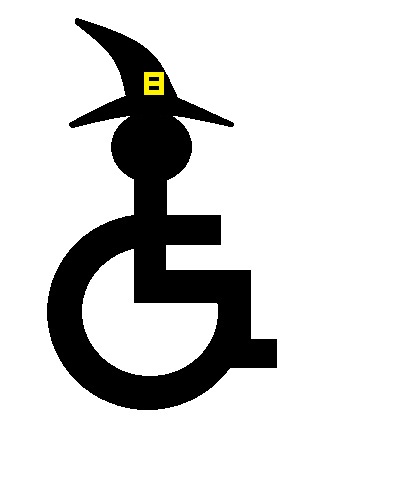That does not necessarily feel like the case for the witches in Diana Wynne Jones' Aunt Maria (pronounced ma-RYE-uh). At least right off the bat. We enter this world with news that the main character Midge's father has recently passed and their relative (by marriage only) may need some help in her daily tasks as she is quite old and might be unable to care for herself properly. Midge, her mother, and her older brother, Chris spend the rest of their Easter holiday in Cranbury, a quiet, seemingly deserted town by the sea.
It's interesting to read about the witches in this book, because they don't embody the witch stereotype at all. They don't fly on brooms, or practice potions, have black cats (Aunt Maria seems to really hate animals of all sorts -- mostly because she knows those animals were created by her out of other people) and they certainly don't wear extravagant gowns or robes. They're more of a mystery as we really only get to see them through Midge's eyes, and way after the fact when Midge writes down everything she can remember that day. They have power, yet they rarely use it and seem to bow down to Aunt Maria, who Midge at one point secretly dubs the Queen of Cranbury.
I think the witches in this novel conform more to an archetype of witch than a stereotype. In Aunt Maira the witch's power comes from the spoken work (eg: they could carry on a conversation with someone and their magic would be warping that person without them knowing). The Stereotypical witch would use a wand or some incantation. The women are also just... normal looking women. They are the types of old ladies we'd see walking down the street. They're not particularly ugly, or impossibly beautiful, they're fairly normal. Not to mention they use wheelchairs to get around rather than broomsticks. It's an interesting take on the witch that Diana Wynne Jones does and I think she does it absolutely well.

A little more comfortable than riding a broom for hours?
There is a definite "battle of the sexes" going on in this book and it seems that the women have been "winning" for at least twenty years. All of the men seem to be zombies (not in the undead sense) and the ones that can think clearly and articulate their feelings, constantly express disgust for the women of Cranbury and especially Aunt Maria. While these feelings if discontent are understanding, some of the men say offhand comments to Midge (like "this is men's work") when she's the only one who seems to be trying to help them.
I suppose we could look at this as our culture fearing women in power. Aunt Maria seems to have a lot of patience when it comes to people who annoy her (she often ignores them or sends them away to do menial tasks) but when they finally hit the last straw, bad things tend to happen. The men of the town hate Aunt Maria, yet they're afraid of her, fearing that they are "too weak" to do anything about it because their leader disappeared and without him, the men view themselves as useless.
The best part of the book is that Midge is the one who does all the work and help to bring peace back to Cranbury. She helps take down Aunt Maria because of the horrible things she's done to the people she loves, and the other people of the town and believes that there is a better way to co-exist rather than keeping everybody under her thumb. Once Chris gets turned into a wolf and her mother brainwashed into believing that they've left Chris in London, Midge really steps up to right all the wrongs that have been done to her family.
I suppose we could look at this as our culture fearing women in power. Aunt Maria seems to have a lot of patience when it comes to people who annoy her (she often ignores them or sends them away to do menial tasks) but when they finally hit the last straw, bad things tend to happen. The men of the town hate Aunt Maria, yet they're afraid of her, fearing that they are "too weak" to do anything about it because their leader disappeared and without him, the men view themselves as useless.
The best part of the book is that Midge is the one who does all the work and help to bring peace back to Cranbury. She helps take down Aunt Maria because of the horrible things she's done to the people she loves, and the other people of the town and believes that there is a better way to co-exist rather than keeping everybody under her thumb. Once Chris gets turned into a wolf and her mother brainwashed into believing that they've left Chris in London, Midge really steps up to right all the wrongs that have been done to her family.
0 comments:
Post a Comment